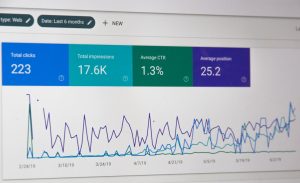At its core, blockchain technology represents a revolutionary approach to data management and storage, characterized by its decentralized nature. Unlike traditional databases that rely on a central authority to validate and store information, blockchain operates on a distributed ledger system where multiple participants maintain copies of the same data. This decentralized architecture not only enhances transparency but also significantly reduces the risk of data tampering.
Each block in the chain contains a set of transactions, a timestamp, and a cryptographic hash of the previous block, creating an immutable record that is nearly impossible to alter without consensus from the network. This foundational principle of blockchain ensures that once data is recorded, it remains secure and verifiable, fostering trust among users who may not know each other. Moreover, the consensus mechanisms employed by blockchain networks, such as Proof of Work or Proof of Stake, play a crucial role in maintaining the integrity of the system.
These mechanisms require participants to validate transactions before they are added to the blockchain, ensuring that all entries are legitimate and agreed upon by the majority. This collaborative validation process not only enhances security but also democratizes data management, allowing individuals and organizations to participate in the network without needing a central authority. As a result, blockchain technology has garnered significant attention across various sectors, from finance to healthcare, as it promises to streamline operations and enhance accountability in ways that were previously unattainable.
Key Takeaways
- Blockchain is a decentralized, distributed ledger technology that records transactions across multiple computers in a secure and transparent manner.
- Blockchain technology has the potential to revolutionize various industries, including finance, healthcare, supply chain management, and more.
- Challenges in implementing blockchain solutions include scalability, interoperability, regulatory compliance, and the need for skilled professionals.
- The security features of blockchain, such as encryption, immutability, and consensus mechanisms, make it a highly secure and tamper-resistant technology.
- Blockchain can streamline and secure financial transactions by eliminating intermediaries, reducing costs, and increasing transparency and efficiency.
Exploring the Potential Applications of Blockchain Technology
The versatility of blockchain technology has led to its exploration across a myriad of applications beyond its initial use in cryptocurrency. One of the most promising areas is in supply chain management, where blockchain can provide unparalleled transparency and traceability. By recording every transaction and movement of goods on a public ledger, stakeholders can track products from their origin to their final destination.
This level of visibility not only helps in verifying the authenticity of products but also aids in identifying inefficiencies and reducing fraud. For instance, in the food industry, blockchain can trace the journey of produce from farm to table, ensuring that consumers receive safe and high-quality products while enabling companies to respond swiftly to recalls or safety concerns. In addition to supply chain management, blockchain technology is making significant strides in the realm of digital identity verification.
Traditional methods of identity verification often involve cumbersome processes that can be prone to errors and fraud. Blockchain offers a decentralized solution where individuals can control their own identity data, sharing only what is necessary for specific transactions. This self-sovereign identity model not only enhances privacy but also reduces the risk of identity theft.
Furthermore, organizations can streamline their onboarding processes by utilizing blockchain for secure and efficient verification of credentials, thereby saving time and resources while improving user experience.
Overcoming Challenges in Implementing Blockchain Solutions

Despite its potential, the implementation of blockchain technology is not without challenges. One significant hurdle is the scalability issue that many blockchain networks face. As more users join the network and transaction volumes increase, maintaining speed and efficiency becomes increasingly difficult.
For instance, Bitcoin’s network can process only a limited number of transactions per second compared to traditional payment systems like Visa. This limitation raises concerns about the practicality of using blockchain for high-volume applications. To address this challenge, developers are exploring various solutions such as layer-two scaling solutions and sharding techniques that aim to enhance transaction throughput without compromising security.
Another challenge lies in regulatory uncertainty surrounding blockchain technology. Governments around the world are still grappling with how to classify and regulate cryptocurrencies and blockchain applications. This lack of clear regulatory frameworks can deter businesses from adopting blockchain solutions due to fears of compliance issues or potential legal repercussions.
Additionally, varying regulations across jurisdictions can complicate cross-border transactions and hinder global collaboration. To overcome these challenges, stakeholders must engage in dialogue with regulators to establish clear guidelines that foster innovation while ensuring consumer protection and financial stability.
Harnessing the Security Features of Blockchain
| Security Feature | Description |
|---|---|
| Decentralization | Reduces the risk of a single point of failure and makes it harder for attackers to compromise the network. |
| Cryptographic Hash Functions | Ensures data integrity and authenticity by creating a unique digital fingerprint for each block of data. |
| Consensus Mechanisms | Enables agreement on the state of the blockchain, preventing unauthorized changes to the data. |
| Immutable Ledger | Once data is added to the blockchain, it cannot be altered or deleted, providing a tamper-proof record. |
| Smart Contracts | Self-executing contracts with predefined rules and automated enforcement, reducing the need for intermediaries. |
One of the most compelling advantages of blockchain technology is its robust security features, which stem from its decentralized architecture and cryptographic principles. Each transaction recorded on a blockchain is encrypted and linked to previous transactions through cryptographic hashes, creating a secure chain that is resistant to tampering. This inherent security makes blockchain an attractive option for industries that require high levels of data integrity, such as finance and healthcare.
For example, patient records stored on a blockchain can be accessed only by authorized personnel, ensuring confidentiality while allowing for seamless sharing among healthcare providers when necessary. Furthermore, the immutability of blockchain records serves as a powerful deterrent against fraud and cyberattacks. Once data is added to the blockchain, it cannot be altered or deleted without consensus from the network participants, making it exceedingly difficult for malicious actors to manipulate information.
This feature is particularly beneficial in sectors like voting systems or public records management, where trust in data integrity is paramount. By leveraging these security features, organizations can enhance their operational resilience and build trust with their customers, ultimately leading to greater adoption of blockchain solutions across various industries.
Leveraging Blockchain for Financial Transactions
The financial sector has been one of the earliest adopters of blockchain technology, recognizing its potential to revolutionize traditional banking systems. By enabling peer-to-peer transactions without intermediaries, blockchain can significantly reduce transaction costs and processing times. For instance, cross-border payments that typically take several days to settle can be completed within minutes using blockchain-based platforms.
This efficiency not only benefits consumers but also opens up new opportunities for businesses operating in global markets. Moreover, smart contracts—self-executing contracts with terms directly written into code—can automate various financial processes, further streamlining operations and reducing reliance on manual intervention. Additionally, blockchain technology has paved the way for innovative financial products such as decentralized finance (DeFi).
DeFi platforms leverage blockchain to offer services like lending, borrowing, and trading without traditional financial institutions acting as intermediaries. This democratization of finance empowers individuals by providing access to financial services that may have been previously unavailable due to geographical or economic barriers. However, while DeFi presents exciting opportunities for financial inclusion, it also raises concerns regarding security and regulatory oversight that must be addressed as the sector continues to evolve.
Integrating Blockchain into Supply Chain Management

The integration of blockchain technology into supply chain management holds immense promise for enhancing efficiency and transparency across various industries. By providing a single source of truth for all stakeholders involved in the supply chain—from manufacturers to retailers—blockchain enables real-time tracking of goods and materials throughout their journey. This visibility allows companies to optimize inventory management, reduce waste, and improve overall operational efficiency.
For example, retailers can gain insights into consumer demand patterns by analyzing data recorded on the blockchain, enabling them to make informed decisions about stock levels and product offerings. Moreover, the ability to verify the authenticity of products through blockchain can significantly impact industries plagued by counterfeiting and fraud. In sectors such as luxury goods or pharmaceuticals, where brand reputation is paramount, consumers are increasingly seeking assurance that they are purchasing genuine products.
By utilizing blockchain to trace the provenance of items, companies can provide customers with verifiable proof of authenticity, thereby enhancing trust and loyalty. As more organizations recognize the value of integrating blockchain into their supply chain processes, we can expect a shift towards more sustainable and ethical practices that prioritize transparency and accountability.
Embracing the Future of Blockchain Technology
As we look ahead, it is clear that blockchain technology is poised to play a transformative role across various sectors in the coming years. The ongoing development of new protocols and platforms continues to expand the possibilities for innovation within this space. For instance, advancements in interoperability between different blockchains could facilitate seamless data exchange across networks, further enhancing collaboration among organizations.
Additionally, as more industries explore the potential applications of blockchain—from healthcare to real estate—the demand for skilled professionals who understand this technology will likely surge. However, embracing the future of blockchain also requires addressing existing challenges such as scalability and regulatory compliance. Stakeholders must work collaboratively to develop solutions that not only enhance the functionality of blockchain networks but also ensure they operate within legal frameworks that protect consumers while fostering innovation.
As we navigate this evolving landscape, it is essential for businesses and individuals alike to remain informed about developments in blockchain technology and its implications for society at large. By doing so, we can harness its full potential to create a more transparent, efficient, and equitable world for generations to come.
If you’re interested in learning more about the implications of blockchain technology on privacy policies, you might find the article on “Privacy Policy” at Bongoc.top insightful. It discusses how blockchain can potentially enhance data security and user privacy, which is crucial in the digital age. You can read more about this topic by visiting their Privacy Policy page. This article could provide valuable insights into how blockchain technology is influencing privacy policy frameworks across various platforms.
FAQs
What is Blockchain?
Blockchain is a decentralized, distributed ledger technology that records transactions across multiple computers in such a way that the recorded transactions cannot be altered retroactively.
How does Blockchain work?
Blockchain works by creating a chain of blocks, where each block contains a list of transactions. These blocks are linked together using cryptographic hashes, creating a secure and tamper-proof record of transactions.
What are the key features of Blockchain?
The key features of Blockchain include decentralization, transparency, immutability, security, and efficiency. These features make Blockchain a reliable and trustworthy technology for recording and verifying transactions.
What are the applications of Blockchain?
Blockchain has a wide range of applications, including cryptocurrency, supply chain management, voting systems, identity verification, smart contracts, and more. It is also being explored for use in industries such as finance, healthcare, and real estate.
What are the benefits of Blockchain?
The benefits of Blockchain include increased security, reduced costs, improved transparency, faster transactions, and enhanced trust. It also eliminates the need for intermediaries in many transactions, leading to greater efficiency.
What are the challenges of Blockchain?
Challenges of Blockchain include scalability, regulatory issues, interoperability, energy consumption, and privacy concerns. Additionally, the technology is still relatively new and requires further development and standardization.

















